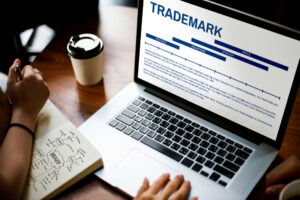2025 Laundry Business Trends: Growth Predictions and Service Innovations
The laundry business has evolved significantly over the past decade, driven by technological advancements, changing customer preferences, and environmental concerns. As we enter 2025, the industry is set to experience further transformation with new trends shaping its future. This article explores growth predictions for the laundry business and highlights innovative services that will define the industry in 2025.
Growth Predictions for the Laundry Industry in 2025
1. Continued Market Growth
The global laundry services market is projected to maintain steady growth. According to a report by Allied Market Research, the industry is expected to reach $118 billion by 2030, growing at a compound annual growth rate (CAGR) of 4.6% from 2021. This growth is fueled by increasing urbanization, dual-income households, and the rising demand for convenient and efficient services.
In emerging markets, such as Southeast Asia and Africa, the laundry industry is set to expand as disposable incomes rise and access to modern appliances remains limited. Meanwhile, in developed markets, demand for eco-friendly and tech-enabled services will continue to drive innovation and revenue.
2. Expansion of On-Demand Laundry Services
On-demand laundry services, often facilitated by mobile apps, have become a staple in urban areas. By 2025, this segment is expected to grow further due to its convenience and alignment with consumer lifestyles. These services cater to busy individuals who prioritize time savings and value seamless digital experiences.
3. Growth of Commercial Laundry
The commercial laundry sector, serving industries such as hospitality, healthcare, and food services, is anticipated to see robust growth. With stringent hygiene standards and the ongoing recovery of travel and tourism post-pandemic, the demand for professional laundry services is on the rise.
Innovative Trends Shaping the Laundry Business
1. Sustainable and Eco-Friendly Practices
Sustainability is no longer optional; it’s a necessity. In 2025, more businesses are adopting eco-friendly solutions to meet customer demands for greener services. Key innovations include:
- Water-Efficient Technologies: Advanced washing machines that use minimal water.
- Eco-Friendly Detergents: Biodegradable and chemical-free detergents are becoming mainstream.
- Energy-Efficient Equipment: Many laundromats are transitioning to energy-saving machines powered by renewable energy sources like solar.
These practices not only reduce environmental impact but also attract eco-conscious customers who are willing to pay a premium for sustainable services.
2. Smart Laundry Solutions
The Internet of Things (IoT) is revolutionizing the laundry business by enabling smart laundry machines that connect to apps and provide features like:
- Remote Monitoring: Customers can track the status of their laundry in real-time.
- Automated Maintenance: Machines alert operators when maintenance is needed, reducing downtime.
- Customized Cycles: Users can select specific cycles tailored to fabric type and cleaning requirements.
Smart laundromats equipped with IoT-enabled machines are becoming more common, offering self-service options with enhanced convenience.
3. Subscription-Based Services
Subscription models are gaining traction in the laundry industry. These services allow customers to pay a flat monthly fee for regular pickups and deliveries, often bundled with perks like express cleaning or garment repairs. Subscription services cater to urban professionals and families seeking predictable and hassle-free laundry solutions.
4. Innovative Cleaning Techniques
New cleaning methods are redefining the laundry experience:
- Wet Cleaning: A safer and more eco-friendly alternative to traditional dry cleaning.
- Ozone Cleaning: Uses ozone gas to sanitize fabrics while reducing water and detergent use.
- Cold-Wash Technology: Allows effective cleaning at lower temperatures, saving energy and preserving fabric quality.
5. Customization and Personalization
Modern customers expect tailored services that meet their specific needs. Personalized laundry services, such as stain removal treatments, garment repairs, and fabric care consultations, are becoming increasingly popular. These add-ons differentiate businesses and enhance customer satisfaction.
Challenges and Opportunities
Challenges
Despite the promising growth, the laundry industry faces several challenges in 2025, including:
- Rising Operational Costs: Higher energy and labor costs can pressure profit margins.
- Environmental Regulations: Businesses must adapt to stricter sustainability laws, which may require significant investments.
- Competitive Market: The proliferation of new players, especially in the on-demand segment, increases competition.
Opportunities
- Partnerships and Collaborations: Partnering with hotels, gyms, and co-working spaces can open new revenue streams.
- Technology Integration: Investing in automation and digital platforms can streamline operations and enhance customer engagement.
- Niche Markets: Offering specialized services, such as wedding garment cleaning or luxury fabric care, can attract premium customers.
Actionable Steps for Laundry Business Owners in 2025
To thrive in 2025, laundry business owners should consider the following strategies:
- Invest in Green Initiatives: Adopt eco-friendly practices to reduce environmental impact and meet customer expectations.
- Leverage Technology: Incorporate IoT and AI to enhance service efficiency and customer convenience.
- Focus on Customer Experience: Offer personalized services, loyalty programs, and seamless digital interactions.
- Diversify Offerings: Expand into commercial laundry or niche markets to tap into new revenue streams.
- Build Brand Trust: Highlight sustainability, transparency, and quality in marketing efforts to build a loyal customer base.
Conclusion
The laundry industry in 2025 is poised for growth, driven by technological innovation, sustainability, and changing consumer preferences. By embracing these trends and addressing challenges proactively, laundry businesses can secure a competitive edge and establish themselves as leaders in the evolving market. Whether through eco-friendly practices, smart technologies, or personalized services, the future of the laundry business promises opportunities for those willing to innovate and adapt.
Still confused about Business?
Click the tombol on the right to Ask the Documenta Team











